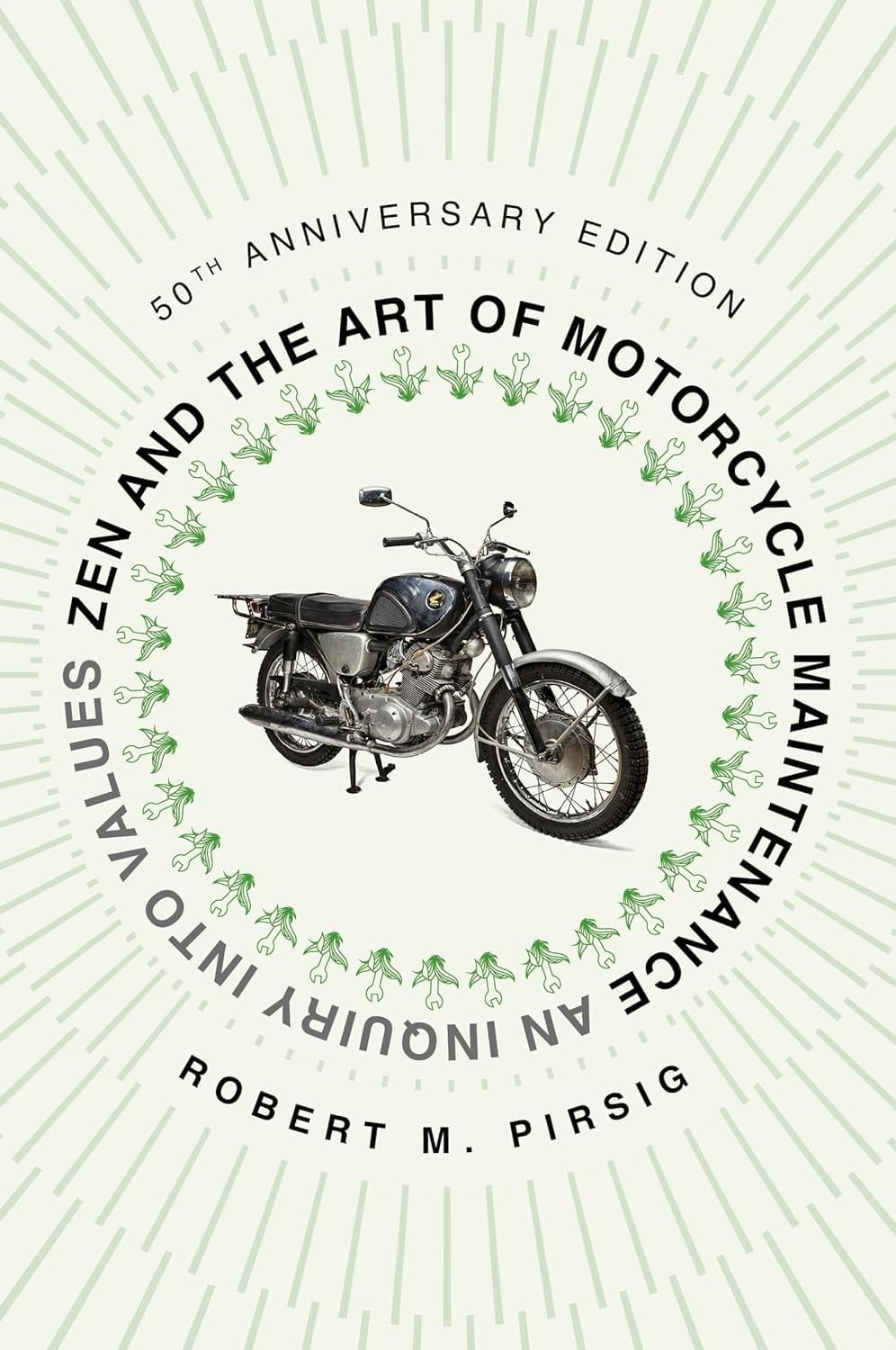The connection between flow and gumption

I have known for a long time that flow states are part of a good life for me. I love to encounter something that I can not help but explore and tinker with in a state of curiosity and deep concentration. I got very easily into flow states as a student. Sitting in the library and working on problem sheets somehow made that easy for me. Sadly my ability to get into flow state got weaker after I got out of university. Something had changed about my environment and approach to solving problems that made flow states less likely. I noticed that but I was not sure what to do about it. What needs to be there for me to achieve flow. What mental models am I missing to understand what's missing?
Book review "Zen and the Art Of Motorcycle Maintenance"
While reading "Zen and the Art Of Motorcycle Maintenance" I learned a new word: gumption. I now view gumption as a precondition to flow states. Here is what Pirsig writes about gumption:
A person filled with gumption does not does not sit around dissipating and stewing about things. He is in front of the train of his own awareness, watching to see what’s up the track and meeting it when it comes. That’s gumption.
One thing I liked a lot about Pirsig's two books is that he not only lays out the narrators conclusions but also describes how his thinking evolved over time. One of the lines of observations is about ... drum roll ... motorcycle maintenance. Specifically the narrators bad experience with bringing his cycle into a shop and the way the mechanics there went about their work.
The question why comes back again and again and has become a major reason for wanting to deliver this Chautauqua. Why did they butcher it so? These were not people running away from technology, like John and Sylvia. These were the technologists themselves. They sat down to do a job and they performed it like chimpanzees. Nothing personal in it. There was no obvious reason for it. And I tried to think back into that shop, that nightmare place, to try to remember anything that could have been the cause.
The radio was a clue. You can't really think hard about what you're doing and listen to the radio at the same time. Maybe they didn't see their job as having anything to do with hard thought, just wrench twiddling. If you can twiddle wrenches while listening to the radio that's more enjoyable.
Their speed was another clue. They were really slopping things around in a hurry and not looking where they slopped them. More money that way if you don't stop to think that it usually takes longer or comes out worse.
But the biggest clue seemed to be their expressions. They were hard to explain. Good-natured, friendly, easygoing and uninvolved. They were like spectators. You had the feeling they had just wandered in there themselves and somebody had handed them a wrench. There was no identification with the job. No saying, “I am a mechanic.” At 5 P.M. or whenever their eight hours were in, you knew they would cut it off and not have another thought about their work. They were already trying not to have any thoughts about their work on the job. In their own way they were achieving the same thing John and Sylvia were, living with technology without really having anything to do with it. Or rather, they had something to do with it, but their own selves were outside of it, detached, removed. They were involved in it but not in such a way as to care.
And for me this lead to an observation about what enriches my life. It's caring about and getting familiar with what something is and how it works. Not the general idea of the thing and it functions but the actual, real thing in front of me. I am reminded of the German word Sorgfalt. I apply Sorgfalt when I work on things without any lingering considerations about what else I could do with my time. In Four Thousand Weeks, Oliver Burkeman calls such a relationship to time task oriented in contrast to treating time as something that has to be measured and is put into boxes with the goal of using time most efficiently. Paul Graham calls it Maker's schedule. While it's very powerful to make sure that I am working on the right things, if I am constantly re-evaluating whether what I am doing now is "the right thing and do it right" I do not get into a flow state.
I started noticing that I had trained myself to stay on the surface more and more to not apply gumption. Because I do not solve math problems everyday anymore I mostly got away with that. Plus having a wide variety of topics I wanted to follow up with I tended to spend less time with any one thing.
While I can not say that these observations changed my life, I am now more aware of what I require to achieve flow. I am perceiving my environment differently. Having made up my mind about what I will sink my teeth in is a good situation for getting into flow. Being unsure which of ten things I should work for how long and trying to juggling them all is a bad one. And if I learned anything the last few years it's that perception comes first. Once perception is changed, other changes come naturally.
